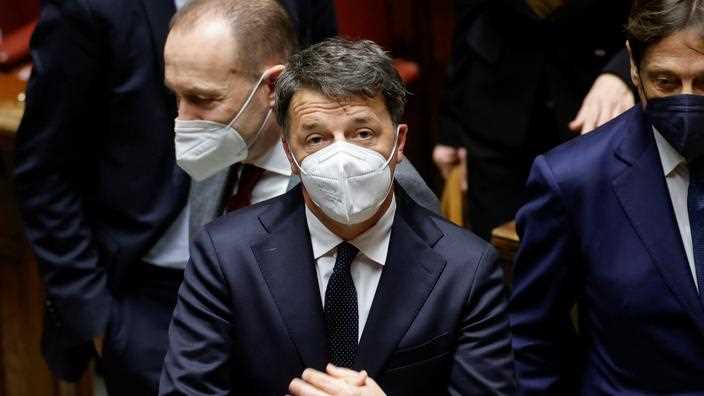The former head of the Italian government Matteo Renzi violently attacked on Thursday February 10 the magistrates who asked the day before for his dismissal for illegal financing of a political party.
Read alsoMatteo Renzi’s daring bet to stay in the game
“I’m innocent and I hope the judges are too“, he declared on the airwaves of Radio Leopolda, going so far as to accuse them of having “violated the law and the Constitution“. Pursued by the Florence prosecutor’s office, Matteo Renzi, head of government from 2014 to 2016, estimated that these magistrates considered his family to be “an association of criminals“. A preliminary hearing has been set for April 4, and a judge will decide from that date whether the prosecution has enough evidence to bring Matteo Renzi to justice.
3.5 million euros from the Open Foundation
At the end of this investigation, which began in 2019, the prosecutors accuse Matteo Renzi of having illegally benefited, in his capacity as a politician, from funding from the Open foundation of which he was the occult boss. The Open Foundation, dissolved in 2018, supported Matteo Renzi during his meteoric rise from mayor of Florence to leader of the center-left Democratic Party (PD) and then prime minister. According to prosecutors, Open paid around 3.5 million euros to Matteo Renzi and his allies to finance their political activities.
The investigation targets 11 people, including two former ministers close to Matteo Renzi, as well as four companies, including British American Tobacco Italia. In addition to Matteo Renzi, the former ministers of his government Maria Elena Boschi and Luca Lotti are also accused of illegal financing of political parties. Lucas Lotti is also accused of corruption and influence peddling.
Read alsoItaly: Matteo Renzi received an envelope with two gun casings
Matteo Renzi had become at 39 the youngest head of government in Italy since Benito Mussolini, but his centrist positioning and his style sometimes considered arrogant had quickly tensed both his allies and the voters. In 2016, he launched a referendum in favor of constitutional reforms, which ultimately turned into a plebiscite against him: the failure of this ballot forced him to resign. He then broke with the PD and founded the small centrist party Italia Viva (credited with nearly 3% of voting intentions), which is part of the government of national unity led by Mario Draghi.
